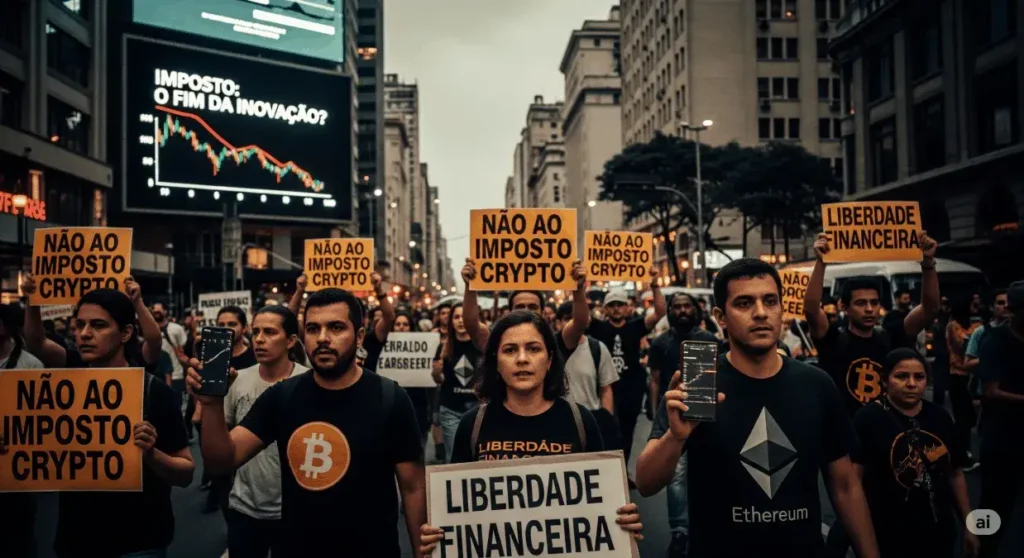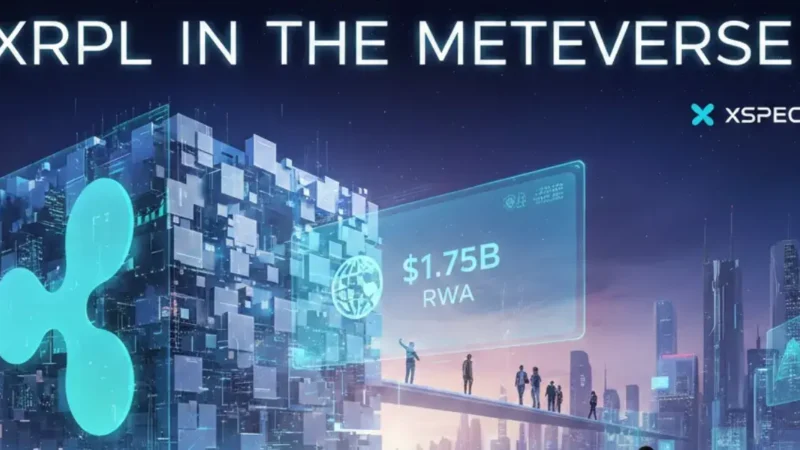Brazil’s Cryptocurrency Industry Mobilizes Against Sweeping Tax Measure

The cryptocurrency industry in Brazil is in a state of heightened alert, mobilizing its forces to challenge a new Provisional Measure that could reshape the country’s digital asset landscape. Provisional Measure No. 1,303/2025, a legislative act with the force of law, has been enacted by the government, introducing a sweeping overhaul of the nation’s financial and capital markets taxation. While the measure affects a broad range of investments, its impact on the crypto sector is particularly profound and has prompted a coordinated effort from key players to halt its implementation.
The core of the controversy lies in the new tax framework it introduces for virtual assets. Previously, Brazil maintained a tax-exempt threshold for crypto gains, allowing individuals to transact up to R$35,000 (approximately $6,300 USD) per month without incurring capital gains tax. This exemption served as a crucial catalyst for mass adoption, particularly for small-scale investors and those using cryptocurrencies for everyday transactions. It provided a regulatory safe harbor that encouraged experimentation and growth within the nascent ecosystem.
Under the new provisional measure, this exemption is effectively eliminated. Instead, a flat tax rate of 17.5% will be levied on all capital gains from cryptocurrency transactions, regardless of the amount. This represents a significant shift from the previous progressive tax structure, which taxed larger gains at higher rates but offered a lifeline to smaller investors. The change is poised to disproportionately affect the everyday user, who may now face a tax liability on even the smallest profitable trade.
The Industry’s Core Arguments
The cryptocurrency industry’s opposition is multifaceted, rooted in both economic and philosophical principles. Analysts and industry leaders agree that if enacted, this measure would seriously hinder adoption and divert cryptocurrency activity to decentralized platforms. This concern is the central theme of the industry’s campaign against the measure.
Hurdling Mass Adoption
The primary concern is the chilling effect the new tax rules will have on new users. The previous tax exemption was a powerful incentive for Brazilians to enter the crypto market without the burden of complex tax calculations or reporting requirements. The new 17.5% flat tax, combined with the elimination of the exemption, creates an immediate and potentially discouraging barrier. For a user making a small profit of just a few hundred reals, the complexity of calculating and paying a tax could outweigh the benefit of using crypto altogether. This is seen as a direct impediment to the ongoing efforts of the cryptocurrency industry to onboard a new generation of users into the digital economy.
The measure’s requirement for quarterly reporting, including for transactions involving self-custody wallets and foreign crypto holdings, adds another layer of administrative burden. This complexity could push less sophisticated users away from regulated exchanges and towards peer-to-peer (P2P) platforms or self-custody solutions, where transactions are harder to track. This unintended consequence could lead to a less transparent and more fragmented market, undermining the very regulatory goals the government seeks to achieve.
A Push Towards Decentralization
Another major consequence highlighted by industry analysts is the potential for a mass migration of activity to decentralized platforms. Decentralized finance (DeFi) and other non-custodial services operate outside the purview of traditional centralized exchanges, making them difficult for tax authorities to monitor. By making centralized exchanges and services less attractive with increased tax burdens and reporting requirements, the provisional measure could inadvertently accelerate the use of decentralized alternatives.
This would create a paradoxical outcome. The government’s attempt to expand its tax base and increase revenue could, in fact, lead to the opposite. By pushing users to a parallel, decentralized economy, the measure risks losing all potential tax revenue from those users. The cryptocurrency industry, with its focus on permissionless and borderless technology, is uniquely positioned to adapt to these new realities. As one analyst noted, “If you make it too difficult to play by the rules, people will find a way to play outside of them.”
The Legislative Battle Ahead
The provisional measure is not yet permanent law. As a legislative tool, it has an initial validity of 60 days, which can be extended for an additional 60 days. To be converted into permanent law, it must be approved by the National Congress. If it is not voted on within 45 days, it enters “urgency status,” which means it takes priority in the legislative chamber until a final decision is made. This legislative process provides a critical window for the cryptocurrency industry to advocate against the measure.
Lobbying groups, think tanks, and individual companies are actively engaging with lawmakers to highlight the negative consequences of the proposed tax changes. Their efforts are aimed at convincing Congress that the measure, while intended to generate revenue, could stifle innovation and ultimately harm Brazil’s position as a regional leader in the digital asset space. The industry’s message is clear: a balanced regulatory approach that fosters growth and user adoption is more beneficial in the long run than a punitive one that could push economic activity underground.
Global Context and Future Implications
Brazil’s move is part of a broader global trend of governments attempting to regulate and tax the rapidly growing digital asset market. However, the specific approach of eliminating a small-scale exemption stands in contrast to the policies of some other nations that have tried to balance tax collection with market growth. For instance, countries like Portugal and Germany have, at times, offered favorable tax treatment for long-term crypto holdings, recognizing the importance of investment and stability.
The outcome of this legislative battle in Brazil will have implications far beyond the country’s borders. It could serve as a case study for other developing nations grappling with how to integrate the cryptocurrency industry into their existing financial systems. The cryptocurrency industry is watching closely, hoping to demonstrate to lawmakers the importance of creating a regulatory environment that encourages, rather than discourages, innovation. The fight in Brazil is not just about tax rates; it is about shaping the future of finance and the role of decentralized technology in the global economy.
Stay informed, read the latest crypto news in real time!
The Path Forward
For now, the Brazilian cryptocurrency industry is united in its opposition. Its campaign is focused on educating lawmakers about the unique characteristics of digital assets and the potential for regulatory overreach to have a counterproductive effect. The goal is to either amend the provisional measure to reinstate a reasonable exemption or to see it lapse without a vote, allowing for a more comprehensive and collaborative dialogue on the future of crypto regulation in Brazil. The fate of the measure hangs in the balance, and with it, the trajectory of crypto adoption in one of Latin America’s largest markets.




